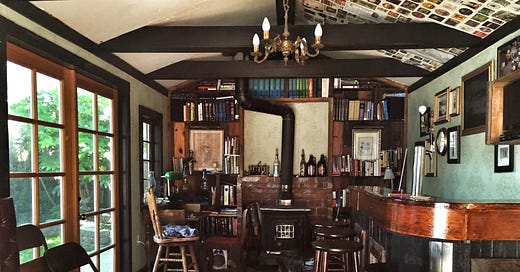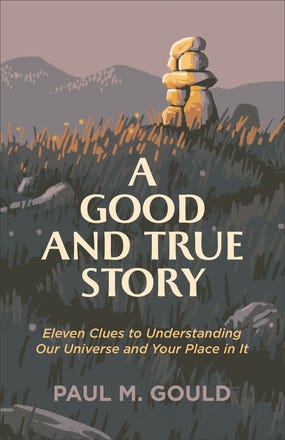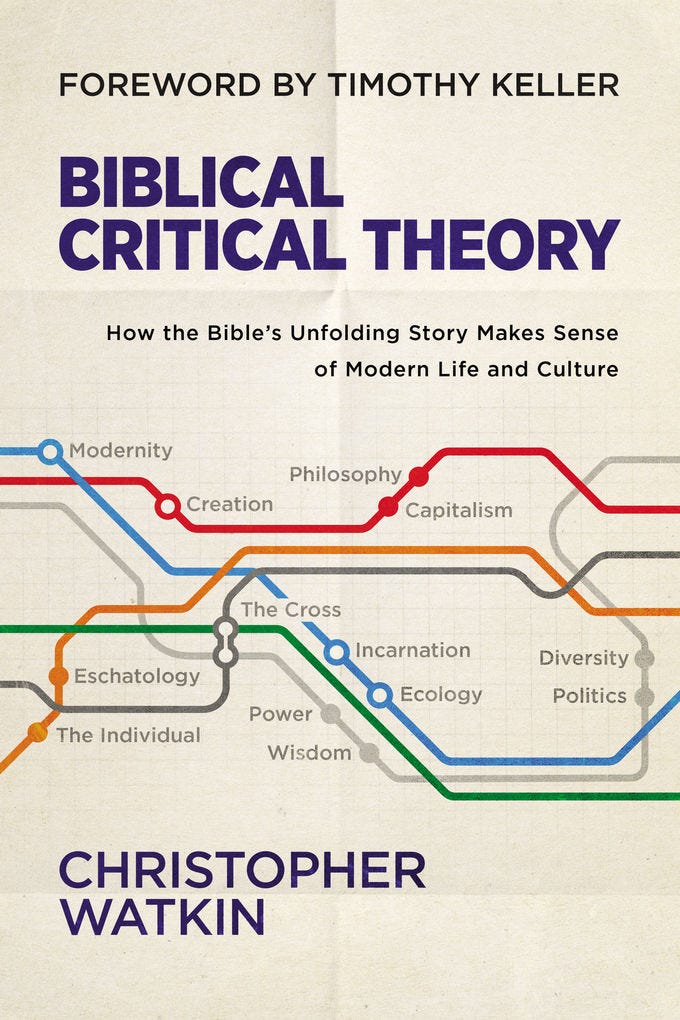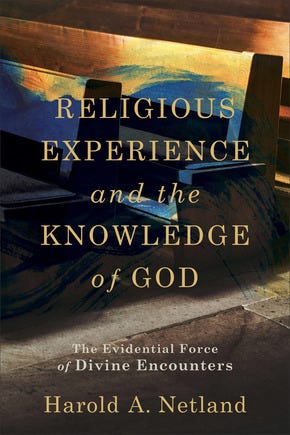Brent Lyons was finishing up his Master’s degree at Talbot School of Theology in science and religion and just knew he wanted to reach nonbelievers with all that he had learned. Living in what some have called the “City of Misfits,” Portland, Oregon, was not in short supply of people who are anti-religious with atheistic leanings. This city has one of the highest population groups of people who have rejected the religion in which they were brought up, according to Lyons.[1]
“This is a place that really needs help—where it’s a liability to be a Christian,” Lyons said. So how does one go about reaching a group of people who would never set foot again in a church? By talking philosophy in a pub-like atmosphere.
The idea of a “Philosophy Pub” began brewing in Lyons’ mind after praying about what God was asking of him. He sensed that God wanted him to show non-churched people that Christians care about them, and to show that Christianity can answer the difficult questions of life. He started out with the intention of disciple-making, but soon realized relationship-building comes first.
Fortunately for Lyons, he already had a built-in pub (pictured above). He had converted his garage with pub-like decor, loads of books lining the walls, and three beer taps (Lyons brews his own beer). He has an open-door policy to his local neighbors, yet he wanted to reach more people.
The Anglican church Lyons attends has an intellectual bent to it, so he approached them with this outreach idea, and they fully supported it. Both Lyons and his church leaders began to pray about it. There was “no formula outside of prayer” for success in this endeavor, Lyons said.
Inviting Seekers
Lyons began to frequent local cafes, the kind with great coffee and spaces to work. He’d pick a large, shared table to plug his PC in, and begin to work. Intentionally, he’d engage others sitting at the shared space with friendly conversation.
The question always came up: “What do you do?” Lyons answered, “I am a software developer and study philosophy a lot.” That piqued people’s interest. And then he’d tell them he was starting a philosophy of religion group at his “pub,” and asked if they’d be interested in attending. He started gathering emails. By the end of a month, Lyons had 50 email addresses!
Lyons chose to use the term “philosophy” over apologetics for obvious reasons—hardly anyone knows the word “apologetics,” and he wants to use terms that are more seeker-sensitive. He also helps some who appear intimidated with the subject of philosophy by joking about it, telling people, “We’re not going to just sit around and naval gaze. We’re just going to talk about the deeper questions.”
“The only requirement of attending,” Lyons said, “is that everyone has to come with one question.”
It’s a brilliant way to involve people and help attendees foster their own sense of ownership in the group. This also frees Lyons up from having to be the one coming up with a monthly topic. People love it! And Lyons is up-front about his position—everyone knows he is a Christian. In the meetings, he acts more as a moderator, facilitating discussion yet always sharing his opinion while encouraging others to answer first. They start at 7:00 p.m. on a Friday night, and sometimes Lyons lets people linger late because a closeness develops.
Philosophy Pub Meeting Format
1. Meet Fridays, once a month, from 7:00-9:30 p.m.
2. Come with a question that has only a “yes” or “no” answer to it.
3. Everyone gathers and chit-chats for a few minutes. (Some grab a beer, but Lyons keeps it at two beers/person.)
4. Then Lyons starts by going around the room and getting everyone to say their name and their question. (He writes their name down next to their question.)
5. He then repeats the questions and has everyone vote on them. (They can vote for more than one.)
6. He counts the marks, and chooses the top three.
7. Another round of voting happens, but only one vote for one question this time.
8. The last round of voting is the subject to discuss that evening.
Lyons seeds questions, too, and words them provocatively so that his questions are often selected. Others have excellent questions, too. Surprisingly, once a non-practicing Jew asked the question of the night: “Is Jesus the only way for salvation?”
Once a question is selected, Lyons wants to know why that question was chosen: He asks the questioner to explain the background—what is the struggle, how did you come up with the question, and why does it matter?
One night, Lyons said the topic of abortion came up. Even though Portland is a very liberal city, he said everyone there agreed abortion was wrong, and discussion ensued on whether it should be criminalized. He, along with the others, found the discussion fascinating, which is why people keep coming. This is a safe place to discuss things that really matter.
Lyons prays an hour before his monthly gathering and always offers to pray for those who need it. He says non-Christians appreciate it when you tell them you’re going to be praying for them. “They see it as a kind gesture,” he said.
The Philosophy Pub was a big experiment and one that took a leap of faith. And people keep returning, so the format works. If you’d like to start your own Philosophy Pub, Lyons’ “backyard pub philosophy” is to ideally meet in a welcoming environment, have a consistent date, time, and place, and model discussions in a Socratic format with lots of questions.
Lyons welcomes any questions you may have about the Philosophy Pub via email: brent.lyons@worc.ox.ac.uk. He is currently researching anxiety for a PhD in philosophical theology at Oxford.
Notes
[1] https://www.marketwatch.com/story/this-is-the-most-godless-city-in-america-2015-03-24; https://www.oregonlive.com/faith/2015/03/portland_unaffiliated.html
—Lisa Quintana earned her Master’s Degree in apologetics at Talbot School of Theology, Biola University. She is the Lead Instructor both at Christian Life College (study center), and School of the Bible located at City Church in Madison, Wisconsin. She speaks and writes on apologetics topics, with a passion to use it as a tool for evangelism to reach a skeptical culture. She wants people to know Jesus as the Author of love and life. Find her online at thinkdivinely.com.
A Good and True Story
Eleven Clues to Understanding Our Universe and Your Place in It
Young adults today want authentic answers to their soul-deep questions about God. They want meaningful ways to communicate those answers to others. Most of all, they want to know that they are living a life that matters.
In A Good and True Story, philosopher, apologist, and international speaker Paul Gould leads readers on an engaging journey through eleven clues that suggest Christianity is not only true but satisfies our deepest longings. This creative foray into the foundations of Christian truth explores the universe, morality, happiness, pain, beauty, and more for readers looking for culturally informed apologetics.
Ideal for college-age and twentysomething readers, small group leaders, and anyone interested in the intersection of faith, philosophy, and culture, A Good and True Story reminds readers that their search for identity and purpose is a gift from a loving and purposeful God.
“I am really excited about A Good and True Story. It draws the reader in as if it were a novel. It is accessible, conversational, and full of stories and illustrations. Moreover, the amount of research and breadth of topics covered are impressive. While this book will make apologetics accessible to a broad Christian audience, its main purpose is achieved with excellence: to have an honest, thoughtful conversation with an unbeliever so he or she will have to consider the credentials of Christianity. This is now the best book to give to an unbelieving friend or relative. I loved reading this book, and so will you.”
— J. P. Moreland, distinguished professor of philosophy, Talbot School of Theology, Biola University; author of A Simple Guide to Experience Miracles
See our Worldview Bulletin excerpt from A Good and True Story here.
Find A Good and True Story at Amazon, Baker, and other major booksellers.
Biblical Critical Theory
How the Bible's Unfolding Story Makes Sense of Modern Life and Culture
In Biblical Critical Theory, Christopher Watkin shows how the Bible and its unfolding story help us make sense of modern life and culture.
Biblical Critical Theory exposes and evaluates the often-hidden assumptions and concepts that shape late-modern society, examining them through the lens of the biblical story running from Genesis to Revelation, and asking urgent questions like:
How does the Bible's storyline help us understand our society, our culture, and ourselves?
How do specific doctrines help us engage thoughtfully in the philosophical, political, and social questions of our day?
How can we analyze and critique culture and its alternative critical theories through Scripture?
Informed by the biblical-theological structure of Saint Augustine's magisterial work The City of God (and with extensive diagrams and practical tools), Biblical Critical Theory shows how the patterns of the Bible's storyline can provide incisive, fresh, and nuanced ways of intervening in today's debates on everything from science, the arts, and politics to dignity, multiculturalism, and equality. You'll learn the moves to make and the tools to use in analyzing and engaging with all sorts of cultural artifacts and events in a way that is both biblically faithful and culturally relevant.
“A brilliant and unique book . . . It is the most biblical, up-to-date, and comprehensive analysis of contemporary Western culture that I know of.”
—Joshua Chatraw, Center for Public Christianity
“This is a magnificent achievement. It is a must-read . . . Here is a total defense and commendation of Christianity like no other. Buy it. Read it. Ponder it. Pass it on.”
—John Dickson, Jean Kvamme Distinguished Professor of Biblical Evangelism and Distinguished Scholar in Public Christianity, Wheaton College
See our Worldview Bulletin excerpt from Biblical Critical Theory here.
Find Biblical Critical Theory at Amazon, Zondervan, and other major booksellers.
Religious Experience and the Knowledge of God
The Evidential Force of Divine Encounters
For many Christians, personal experiences of God provide an important ground or justification for accepting the truth of the gospel. But we are sometimes mistaken about our experiences, and followers of other religions also provide impressive testimonies to support their religious beliefs.
Religious Experience and the Knowledge of God offers an introduction to the complex topic of religious experience and its viability as support for Christian belief, lending credibility to the Christian claim that experiences support our beliefs and actions. Harold Netland explores from a philosophical and theological perspective the viability of divine encounters as support for belief in God, arguing that some religious experiences can be accepted as genuine experiences of God and can provide evidence for Christian beliefs. The book also draws out the implications of religious experience for Christian witness, missiology, and apologetics in today’s globalizing and religiously diverse world.
“In Religious Experience and the Knowledge of God, Netland provides a thorough and illuminating account of how religious experience can function as an important testimony for God. His reasoning is careful, and he deals thoughtfully with various objections along the way, alert not to overstate the degree of certainty afforded by experience or to isolate religious experience from other sources of the knowledge of God. The book is conversant with the best of recent philosophical literature while also including important historic testimonies like those of Jonathan Edwards and John Wesley. This is a robust, balanced, and compelling treatment of an important topic.”
— Gavin Ortlund, author of Why God Makes Sense in a World That Doesn't
See our interview with Harold Netland on religious experience here.
Find Religious Experience and the Knowledge of God at Amazon, Baker, and other major booksellers.
*The above three posts are sponsored.
Advertise in The Worldview Bulletin
Do you have a book, course, conference, or product you’d like to promote to 5,400 Worldview Bulletin readers? Click here to learn how. We’re currently booking for December and January.
Subscribe to or Support The Worldview Bulletin
Your support makes The Worldview Bulletin possible! We couldn’t do this without the support of you, our readers. We would be grateful for your help in any of the following ways:
Subscribe to our monthly newsletter and receive exclusive content from our team of world-class scholars and access to our full archive of scores of articles that provide a master class in Christian apologetics. The Worldview Bulletin will inform, equip, and inspire you! You can also give a gift subscription to a family member or friend who would benefit, or subscribe a group of three or more and save 20%.
Make a one-time or recurring donation.
Become a Patron and receive signed books from our team members.
“The Worldview Bulletin shines a brilliant light of truth in a darkening world. These authors, who are experts in their field, consistently provide logical, rational, moral and most importantly biblical answers, in response to the deceitful narratives we are bombarded with daily. I have found it a great source of enlightenment, comfort, and inspiration.”
— B. Shadbolt, Subscriber, New South Wales, Australia
“The Worldview Bulletin is a must-have resource for everyone who’s committed to spreading and defending the faith. It’s timely, always relevant, frequently eye-opening, and it never fails to encourage, inspire, and equip.”
— Lee Strobel, New York Times bestselling author of more than forty books and founding director of the Lee Strobel Center for Evangelism and Applied Apologetics







We're all seekers of the truth within ourselves, even though mostly we might say, we long for a deeper connection with our God or the Lord. But I sense that the meaning to life is no longer a question itself, and one that people are truly after. The consumer culture has taught us that one thing to own is never enough, so we go back to the treadmill hoping that we will connect with ourselves again, like the rat race, we are busy "making and chasing the living" like its something that is before us, we are so sure that happiness and a meaningful life is out there to be found. We've forgotten what it really means to live. Thanks for this incredible read Lisa Quintana